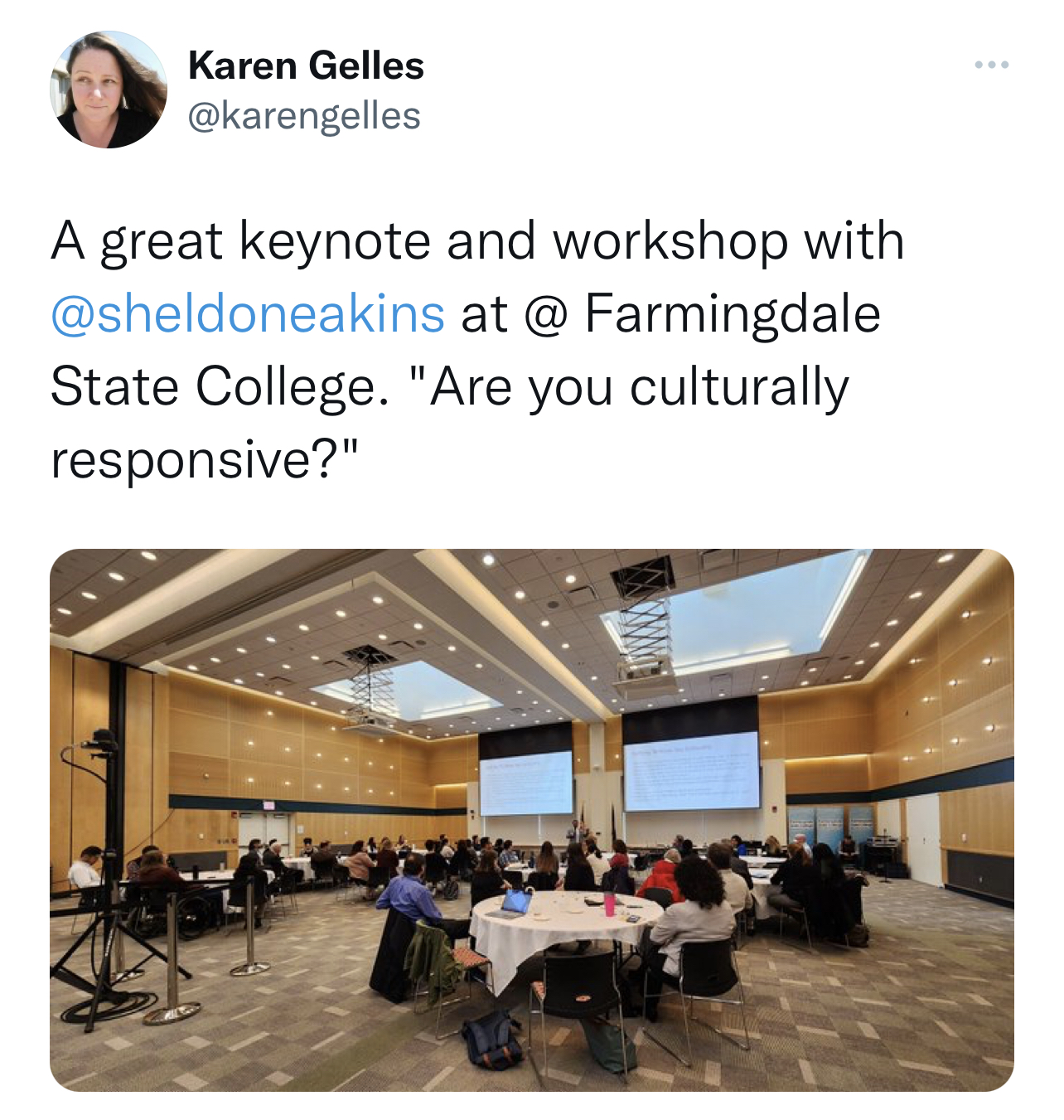Who wants to teach a watered-down curriculum? Raise your hand.

Hey Advocates,
What a week it has been! I stopped in Albany, OR, to wrap up an Equity Audit with the Linn County Juvenile Department of Justice. I facilitated a virtual book study session with the Bondurant-Farrant CSD, then hopped on a plane to New York for a keynote at the Farmingdale State College.
Check out what the Leading Equity Center has to offer! I'd love to speak at your next event/training. Let's chat if you are interested in working together.
Last week I received a response to the newsletter, which included a link to this article, "Wellesley schools settle lawsuit over 'affinity groups' for students of color." As Philip Marcelo from Boston.com reports, "Parents Defending Education has agreed to drop its suit while Wellesley Public Schools will make it clear that the groups are open to any and all students." Parents Defending Education stated in their federal civil rights complaint, "Because racial affinity groups divide children by race, these groups foster racial division and do far more harm than good." I wonder if they would have said the same if other affinity spaces weren't race-related but instead by sexual orientation, language, or ability.
Let's get to this week's Rethinking Schools article, "The Chilling Effects of So-Called Critical Race Theory Bans." As we know, K-12 schools do not teach Critical Race Theory. Still, lawmakers are now passing laws prohibiting conversation about race, gender, and oppression. These laws they are passing "actually exemplify the racist policy structure that critical race theory attempts to explain," say authors Laura Beth Kelly, Laura Taylor, Cara Djonko-Moore, and Aixa D. Marchand (I'll be interviewing the authors of this article for my show, stay tuned).
The authors, who are teachers, educators, and researchers in Memphis, Tennesse, engaged in focus group conversations with fellow teachers to discuss how the law may affect their teaching practices. Several concerns arose, such as how they felt a need to restrict their teaching practices around race, racism, and other forms of oppression. Additionally, the vague wording of the laws filled them with fear over the consequences of being "caught" violating the law.
Who wants to teach a watered-down curriculum? Raise your hand.
As stated in the article, "Teachers seemed to view any lessons that explicitly discussed racial oppression as vulnerable to challenges." Like many other teachers throughout the country whose states passed similar laws, they second-guessed their lessons and the language they used in the classroom, inevitably restricting their curricula. As reported in the article, administrators changed the curricula in other schools to fit the new law requirements. Students interested in teaching even stated how they were moving away from the profession due to the "watered-down curriculum" they would now have to teach.
These laws are doing exactly what the policymakers wanted. They have terrifying and disturbing effects on the classroom. "It doesn't matter that the laws don't actually make it illegal to tell an accurate story of 'the first Thanksgiving'; it matters that teachers worry that it might, so they censor themselves." Again, in what ways will we continue to have to censor the truths of historically marginalized communities? Facts that have long-lasting effects and consequences for today's reality.
Students are also being silenced as there is no room to question or "make sense of racial injustice through connecting the past to the present."
We have power in our voices, and just as we encourage our students to use their voices, we must also use ours. I did not get into teaching to teach from a textbook or only uplift certain "watered-down" narratives. I became a teacher to give my students the tools to be critical analyzers, to question and challenge. These types of laws prohibit us from doing so. That means it's time to be creative. And also illustrates how it's beyond lawmakers; the systems and the structures still prioritize their voices while silencing those of the systemically oppressed.
Content created this week:
Show Highlights
- Sense of belonging
- Student-centered education
- School belonging and classroom belonging
- Student-Teacher relationships
That's all this week,
Sheldon
Book Dr. Eakins
Check out the Leading Equity Center's services.






